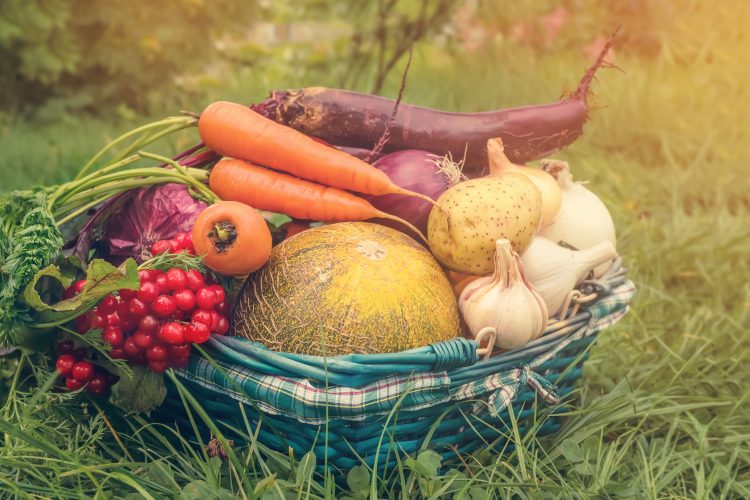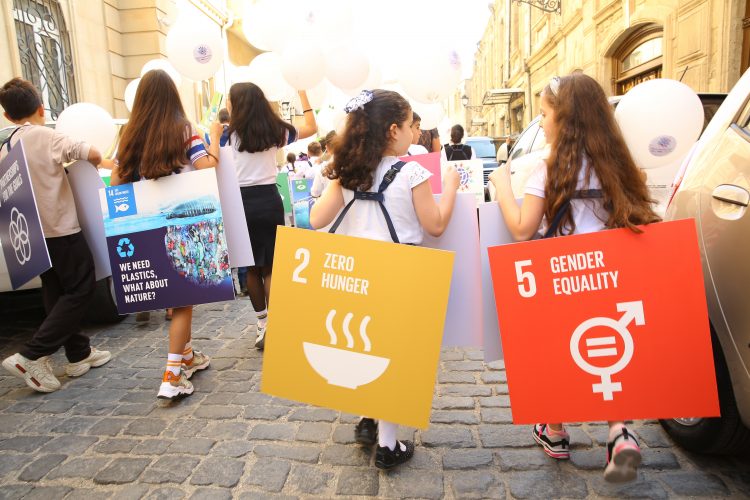A sustainable food system must give priority to safety
- Like
- Digg
- Del
- Tumblr
- VKontakte
- Buffer
- Love This
- Odnoklassniki
- Meneame
- Blogger
- Amazon
- Yahoo Mail
- Gmail
- AOL
- Newsvine
- HackerNews
- Evernote
- MySpace
- Mail.ru
- Viadeo
- Line
- Comments
- Yummly
- SMS
- Viber
- Telegram
- Subscribe
- Skype
- Facebook Messenger
- Kakao
- LiveJournal
- Yammer
- Edgar
- Fintel
- Mix
- Instapaper
- Copy Link
Posted: 8 June 2022 | Anne Gerardi | No comments yet
Following World Safety Day which took place on 7 June 2022, Anne Gerardi, Senior Manager, Global Food Safety Initiative, examines the true meaning of sustainable food.


We need to create a sustainable food system, but we cannot sacrifice safety
The geopolitical and economic crisis and the sustainability challenges that are impacting food systems are making us all reflect on what it takes to put a good, healthy meal on the table for our family. This crisis is global: all over the world, prices are going up and some staples are becoming more difficult to obtain. These pressures are unlikely to decrease any time soon.
The crisis has made it even more urgent to redouble our efforts to build a sustainable food system that works for everyone. But sustainable does not only mean making sure every person has access to food, it also means ensuring that food is safe to eat.
Our starting point for this is simple: if it isn’t safe to eat, it isn’t food. Around the world, an estimated 600 million people – almost one in 10 – fall ill after eating contaminated food each year and concerns over food safety have been exacerbated by the pandemic.
Sustainable food also means safe food
World Food Safety Day has just taken place as an important moment to boost awareness and engagement with food safety – but of course, continued effort and collaboration is vital to make sure that food safety is everyone’s business.
The global food industry takes its responsibility for the safety of food very seriously. Companies are taking strategic decisions that align with the UN’s Sustainable Development Goals (SDGs) and embedding these goals in the food safety ecosystem. Take for example SDG 1 (No poverty) and SDG 2 (Zero hunger); we know that food security and the end of poverty cannot be achieved without safer food. We must continue to strengthen capacities through the food system safety management of food business operators everywhere.


Zero hunger is a key Sustainable Development Goal
SDG 12 speaks directly to food waste and management of chemicals. It can be a challenge to maintain food safety while reducing food waste and it needs rigorous consideration of shelf-life extension and durability labelling. Food safety must also be maintained while keeping control of the contaminants that often come from plastic recycling (closed loop, non-food grade, labels, inks, etc.).
SDG 6 addresses good water and sanitation; maintaining food safety while increasing water re-use is a major challenge at the crossroad between food safety and sustainability, inclusivity, and growth of food systems, putting more efforts to develop education on good water stewardship and management and new practices on the reuse of water with the future CODEX guidelines on that matter will be essential in the development of capacities in food systems.
Collaboration and dialogue
The Global Food Safety Initiative (GFSI) is a Coalition of Action from The Consumer Goods Forum (CGF). We bring together 37 retailers and manufacturers from across the CGF membership and an extended food safety community, to oversee food safety standards for businesses and help to provide access to safe food for people everywhere.
We are collaborating across borders and barriers to help ensure safe food for everyone. Our ambition is to strengthen and harmonise food safety systems so they can feed the growing, global population and develop markets that can deliver food safely, no matter where in the world the consumer is. We represent the food industry’s commitment to food safety and invest in collaborative, transparent and voluntary advances for the benefit of people worldwide and our businesses.
We are harmonising and driving improvements in food safety certification programmes, building food safety capabilities across the global food supply chain, and providing a platform for public-private partnerships – including governments, food safety regulators, IGOs. We also work to ensure best-practice knowledge sharing across our network to advance food safety.
While many individual companies and organisations share the goal of delivering safe food, our focus is on enabling the extensive collaboration and dialogues that are so critical to achieving it. This means involving food retailers and manufacturers, suppliers, the agriculture industry, academics, governments and many others across the world.
We cannot achieve this alone. We must work together to build consumers’ trust in the food they buy. We will engage collectively and proactively with the GFSI community and other stakeholders through ongoing, structured dialogue to share progress, ensure accountability and identify venues for collaboration, especially with CODEX where global guidelines, based on consensus, are given to many of the challenges we must address first.
Collective action and engagement across the entire supply chain is critical to our success, so we welcome those who wish to engage and partner with us, as we seek continuous improvement in food safety management practices.
Everyone has the right to access safe, nutritious and nourishing food. To rise to the scale of the challenges ahead, we need everyone pulling together – building trust and transparency within the industry and protecting consumers.
About the author
Anne Gerardi is GFSI Senior Manager in charge of regulatory affairs, public-private-partnerships and global capacity building programmes for GFSI, Global Food Safety Initiative. She has a background of economics in economic development and food commodities also on climate change, trade, international affairs and finance.
She worked in the retail and banking industry previously. She oversees public-private-partnerships, capacity building and regulatory affairs on food safety and sustainable development goals activities for GFSI Global at the Consumer Goods Forum for 7 years strengthening food safety programmes related to capacity building and public-private dialogue, promoting international trade and food safety management systems through GFSI tools.
Related topics
Food Safety, Food Security, Health & Nutrition, Outbreaks & product recalls, Pathogens, Sustainability
Related organisations
Consumer Goods Forum (CGF), Global Food Safety Initiative (GFSI)









